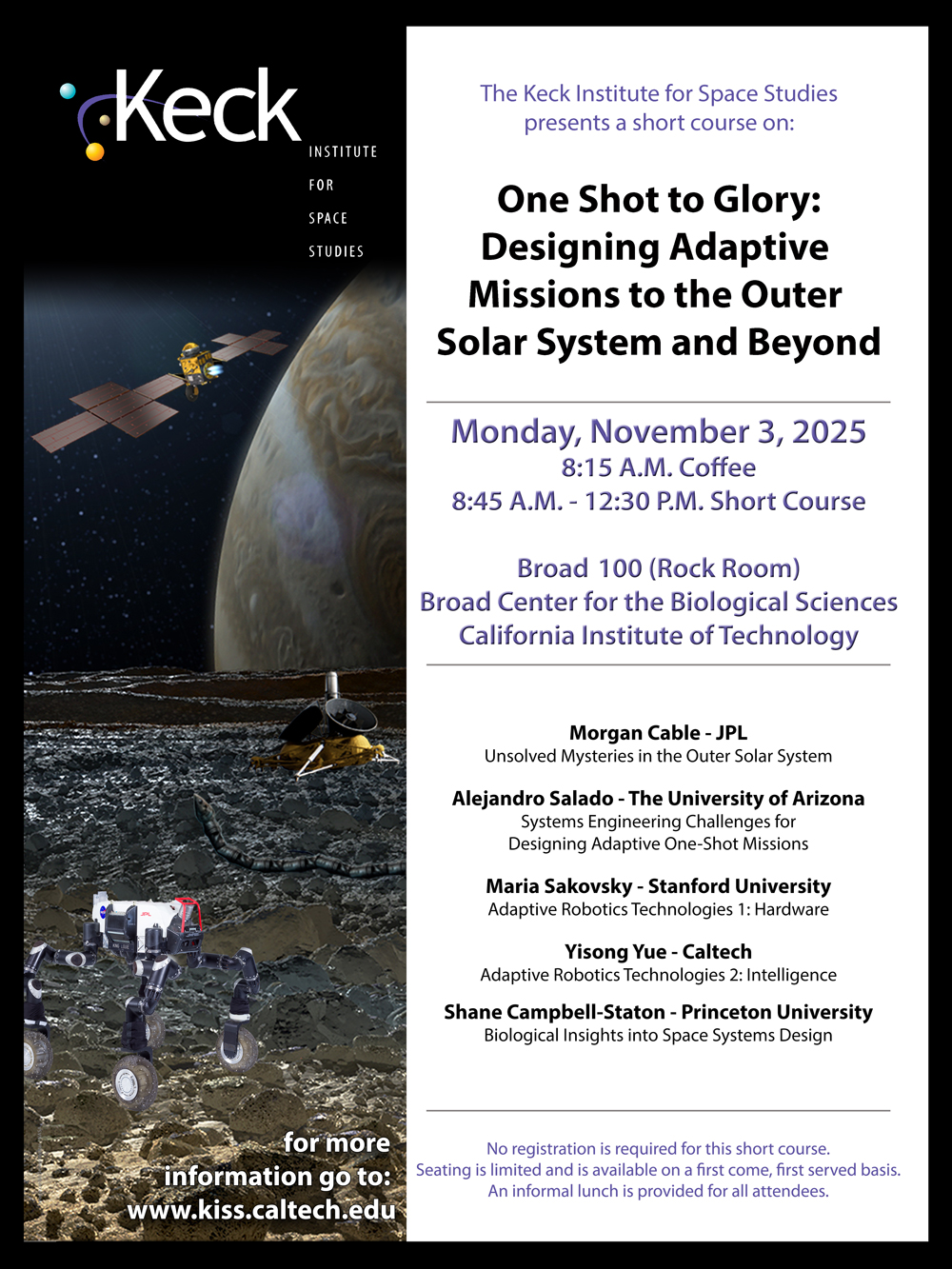Short Course:
One Shot to Glory: Designing Adaptive Missions to the Outer Solar System and Beyond
Monday, November 3, 2025
8:15 A.M. Coffee
8:45 A.M. - 12:30 P.M. Short Course (Informal lunch will be provided for all attendees)
Broad 100 (Rock Room), Broad Center for the Biological Sciences, California Institute of Technology
All interested researchers and students are invited to attend. No registration is required for the short course. Seating is limited and is available on a first come, first served basis.
Short Course Presentations |
|
| Hiro Ono JPL |
Introduction (.pdf) |
| Morgan Cable JPL |
Unsolved Mysteries in the Outer Solar System (.pdf) |
| Alejandro Salado The University of Arizona |
Systems Engineering Challenges for Designing Adaptive Systems (.pdf) |
| Maria Sakovsky Stanford University |
Adaptive Robotic Technologies 1: Hardware (.pdf) |
| Yisong Yue Caltech |
Adaptive Robotic Technologies 2: Intelligence(.pdf) |
| Shane Campbell-Staton Princeton University |
Biological Insight Into Space Systems Design (.pdf) |
Program:
Talk 1 – "Unsolved Mysteries in the Outer Solar System" – Morgan Cable, JPL
- Science goals and capabilities of current NASA, ESA, JAXA missions to explore the outer planets: Europa Clipper, Dragonfly, JUICE
- Summary of future outer planets mission concepts: Uranus Orbiter and Probe (UOP), Enceladus Orbilander, L4 Enceladus Orbiter + Lander, Enceladus NF concepts, Triton Discovery/NF concepts
- Unanswered science questions that future mission concepts may address in the next ~50 years
Talk 2 – "Systems Engineering Challenges for Designing Adaptive Systems" – Alejandro Salado, The University of Arizona
- Fundamentals of Systems Engineering
- Challenges posed by a one-shot mission
- System engineering approaches for a one-shot mission
Talk 3a – "Adaptive Robotic Technologies 1: Hardware" – Maria Sakovsky, Stanford University
- Expanding spacecraft functionality using adaptive hardware
- Overview of emerging technologies for adaptive structures
- Unsolved challenges: sensing, actuation, and control
Talk 3b – "Adaptive Technologies 2: Intelligence" – Yisong Yue, Caltech
- Challenges in adaptive robotic intelligence
- Overview of emerging technologies for adaptive intelligence and example use cases (terrestrial and space)
- Unsolved challenges and future work
Talk 4 – "Biological Insight Into Space Systems Design" – Shane Campbell-Staton, Princeton University
- Critical differences between engineering and evolutionary approaches to system design and developing a unified transdisciplinary framework
- Biological mechanisms and post hoc expansion of perceivable action possibilities
- Inspiration from biology for space systems engineering
